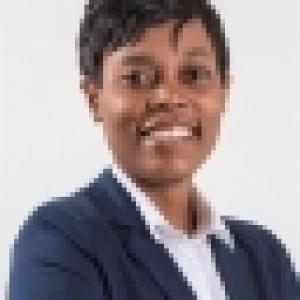
- Global edible aquatic food loss and waste totaled approximately 23.8 million tonnes (MT) in 2021.
- Even with new technologies and recognition of the issue, bycatch is a significant challenge contributing to fish loss and waste, especially in marine fisheries.
- WorldFish’s Asia-Africa BlueTech Superhighway project (AABS) conducted an Inception and Theory of Change Workshop in Kenya, to draw up a systemic approach to addressing fish loss and waste.
Fish loss and waste are significant issues throughout the Aquatic Food Systems (AFS) sector. These issues impact not only economic efficiency and profitability but also environmental sustainability and food security. Reducing fish loss and waste is essential for optimizing the use of natural resources, improving the livelihoods of those dependent on fisheries and aquaculture, and ensuring the sustainability of aquatic ecosystems.
Addressing these issues can significantly improve the incomes of value chain actors. Depending on how soon or late fish is preserved, loss can either be reduced or exacerbated, highlighting the need for positive interventions.
A recently published white paper by the World Economic Forum titled Investigating Global Aquatic Food Loss and Waste reveals global edible aquatic food loss and waste (FLW) totaled approximately 23.8 million tonnes (MT) in 2021, equating to 14.8% of total aquatic food produced that year. Globally, processing on land and production of wild-capture fisheries (discards) accounted for 39.08% and 35.38% of aquatic FLW, respectively, the largest proportions generated in 2021.
WorldFish, through its Asia-Africa BlueTech Superhighway project (AABS) in collaboration with partners, the Kenya Marine and Fisheries Society (KMFRI), Pwani University, Food and Agriculture Organization (FAO), Coastal and Marine Resource Development (COMRED), and the Wildlife Conservation Society (WCS) conducted an Inception and Theory of Change Workshop in Mombasa, Kenya. This collaborative effort aimed to to contextualize the theory of change using participatory systems mapping approach to address fish loss and waste in Kenya, emphasizing a collective responsibility in tackling this issue.
“The workshop objective is to collectively understand the complexities within the Kenyan fish production and post-production systems and the dynamic environment in which they are embedded. This workshop seeks to understand the socio-ecological potential of scaling climate-smart technologies to reduce fish loss and waste along the Kenyan coast, focusing specifically on small-scale fishers,” said Aditya Parmar, WorldFish scientist and lead on Work Package 3 (WP3) of AABS which focuses on scaling climate-smart technologies for reducing fish loss and waste and adding value.
Factors Contributing to Fish Loss and Waste
Most of the time, information gathered on fish loss is limited because the data gathered is usually on what is landed and not what is lost and wasted, even though waste occurs in many forms and at different stages.
Among the causes of fish waste is fish bycatch- capture of non-target species –which, even with new technologies and recognition of the matter, is a significant challenge contributor to waste.
“70% of fish from trawlers are bycatch, which also contributes to waste, we need to explore how this unintentional catch could be utilized beneficially", Dr. Gladys Okemwa, Principal research scientist at KMFRI, explained as she gave the status of marine capture fisheries in Kenya.
Structural market issues are also a leading cause of post-harvest loss and waste. Because fish begin deteriorating immediately after they are removed from the water, the lack of ice for most fishers poses a challenge. Preservation usually begins at the shore, but sometimes not even at the shore due to a lack of proper infrastructure such as cold storage facilities, or the availability of ice or cooler boxes.
In other cases, due to unreliable markets, middlemen do not know how to handle the fish when it doesn't sell. Some keep sprinkling water to get rid of flies, or the fish is placed in buckets or dishes without enough ice, and the handling is relatively poor.
Poor post-harvest handling has reduced income benefits for some fish species such as tuna in Kenya. Even though tuna has a high international value, which could fetch substantial income; the local price is low. Dr. Okemwa revealed in her presentation.
Dr Peter M. Oduor-Odote, a research scientist at KMFRI, added that despite new technologies being introduced to fishers, they are not adopted. He explained that there is a need for mindset change on the part of fishers. He stated that technologies such as solar-powered cold storage, and solar fish-drying machines, among others, have all been introduced but the adoption rate is quite low.
“Reducing loss and waste requires the involvement of all parties in the fish value chain, including boat owners and traders,” he said.
Participatory Systems Mapping Approach to Understand and Address Fish Loss and Waste
The workshop brought together a wide range of stakeholders from both the public and private sectors, including representative of fish traders, fisherfolks, Beach Management Unit representatives, and researchers. The goal of this mapping session was to gather insights and contributions towards developing a systems-based theory of change for Kenya's fisheries sector, with an emphasis on identifying and implementing strategies to reduce fish loss and waste.
“Our main goal is to collectively forge a roadmap for the transformative impact of implementing climate-smart solutions to significantly reduce fish loss and waste in aquatic food systems in Kenya. To do this we will first map and visualize the root causes of post-harvest fish loss and waste within the Kenya fish distribution system and the roles of all stakeholders involved. After that we will collaboratively envision the potential systemic-wide impact of the AABS project activities”, said Timothy Manyise, a WorldFish postdoctoral fellow and systems mapping lead facilitator.
The workshop was held in Mombasa, Kenya, from 3rd to 5th April, 2024. The results will refine and contextualize the theory of change that informs project monitoring, evaluation, learning, and subsequent systemic-wide impact assessment for the AABS project.
